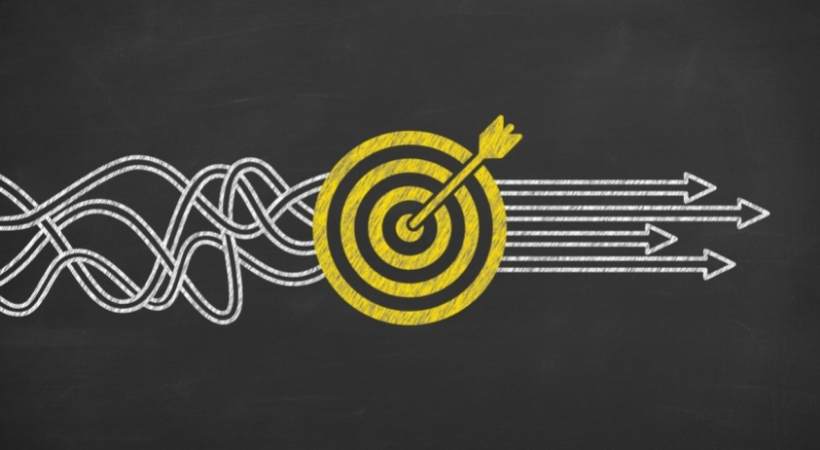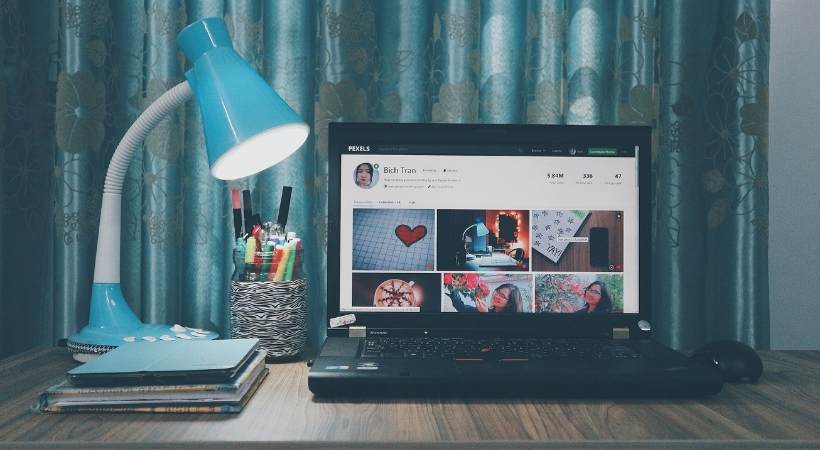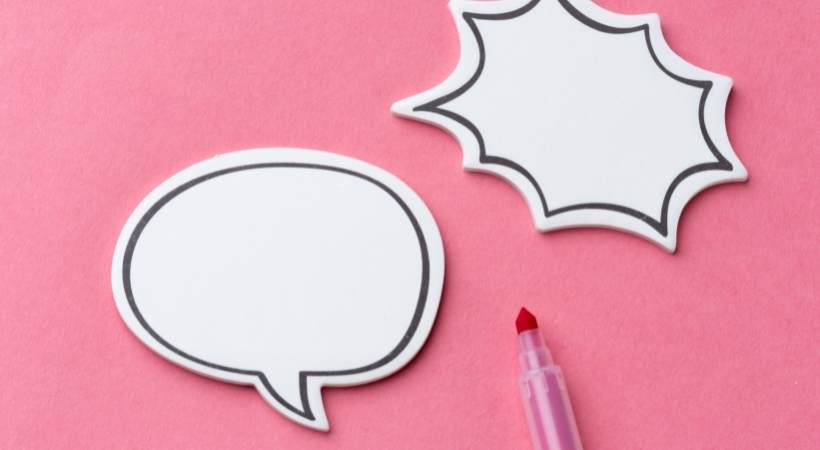Studying 10+ Hours Everyday Without Any Distractions
Everyone, including the toppers (ones with the top marks) and backbenchers, wishes to study tirelessly. How many of you can even consistently stick to a month-long routine?
My elder sister is a medical student. She is the closest person I know to someone who has studied at least 10+ hours daily over the last few years. My never-ending desire is to study as she does; however, the more I try to study like her, the more disappointed I get.
Why is this? Why doesn’t what works well for my sister not work for me? Over time I noticed some strategies my elder sister has followed unconditionally, irrespective of the weather and life’s daily issues.
If we look at it realistically, it’s next to impossible to study 10+ hours per day without getting distracted. There are a few exceptions but don't count on them as your inspiration. If you dig into these students’ situations, you will see they lead a very different lifestyle. They have adopted specific routines and strategies.
So, without a radical change to your lifestyle, how could you possibly expect a study plan as productive as theirs? From my experience and my observations of my sister's study routine, I will give you some tips and tricks to optimize the use of your time. Each item is explained further down.
They are:
Switch off all electronic devices
Set a S.M.A.R.T. goal
Get proper sleep
Have healthy food habits
Combat distractions
Organize your study area
Sit with proper posture
Quality instead of quantity (S.M.A.R.T. goals)
Take a power nap?
Pomodoro break
Proper lighting
Micromanage and Summarize
Don't look at the girl next door!
Stay positive
Keep going, don’t stop, except for planned times
1. Switch off all electronic devices:
First things first. Keep away from/shut off all electronic devices that are not directly related to your studies. It will help you to stay focused on studying.
For example, You're trying to understand a math formula or an economics theory, and, all of a sudden, a notification pops up on your mobile (cell phone) screen. What is likely to happen next? Of course! You immediately rush to your smartphone.
The chances are that this short interruption will turn into an hour of mobile browsing or chit-chat with a friend. OR perhaps there is an exciting sports match on the tv which might distract you.
It will be challenging to concentrate on studying if your brother/housemate is watching a sports match in the next room with the volume cranked up. You best talk to your brother/housemate about such things ahead of time, or you can choose to go to the library during the match.
So, getting ‘rid’ of all electronic devices is your number one priority.

2. Set a S.M.A.R.T. goal:
You don't climb a ladder without having a specific goal. This is what you need to do when studying. Set some S.M.A.R.T. goals. Write them down and stick them on the desk or table where you study so that they are visible every time you go to study.
These specific goals will motivate you to study hour after hour without getting lost or overwhelmed.
Without setting S.M.A.R.T. goals, you will go about studying haphazardly, and not much will be achieved.

3. Proper Sleep:
No matter how motivated you are, you will become exhausted because of inadequate sleep. You may have heard that scientists and entrepreneurs sleep 4-5 hours, and the rest of the time, they work. Yup! You heard it right. What’s important is that you understand the primary differences between studying and working.
Scientists and entrepreneurs are focused on a particular job or task. They won't have any issues working tirelessly. On the other hand, your studying has a long-term goal.
If you frequently don’t get enough sleep, your overall study productivity will gradually get worse. Maybe by Noon or the afternoon, you will be feeling lazy and won't have any motivation to study.
More importantly, you can't fully concentrate on complex topics. In addition, what should have taken two hours to complete may very well take twice the amount of time.
To get sufficient sleep, you must adopt healthy sleep hygiene practices.

4. Healthy food habits:
Healthy food and healthy sleep go hand in hand. They will energize your body and mind all day long. You might be getting proper sleep, but if you do not have proper protein, fiber, mineral, carbohydrate, vitamin… intake, your body, and your mind will tire.
You will experience sleepiness, feel unenergetic and unmotivated, plus, worst of all, and you will lose focus.
Consuming sugary products to compensate won't help you in the long run. Instead, have something like crackers and cheese. The carbohydrates will slow down the absorption of the ‘sugars’ in the cheese, thereby avoiding the ‘crash.’
A healthy, balanced diet will help motivate you, keep your mind sharper and help you to deal with stressors that happen.

5. Shut down distractions:
When you are planning on studying hard for a test or exam by now, I think I can assume that you have already created a set of S.M.A.R.T. goals.
Sticking to your daily plan for 2-3 days is pretty typical. Everyone can achieve this. But you may get distracted or lose motivation after 2-3 days. Like on the fourth day, after reading for 2 hours, you cannot continue studying.
Say you like poetry and literature, and there are literature magazines in front of you, on the table. What will happen next? Of course, you delve right into the literary magazine. After an hour of reading, you still don't have any motivation to solve math problems.
Reading literature gives you short-term relief, but it distracts your mind for the rest of the day.
If you don’t have the option to read a magazine, you won't pick one up, and you will actively try to continue concentrating on your studies.
Time to get rid of all distractions within your sight.

6. Organizing your study area:
One other rule of setting yourself up properly to study effectively is to organize your study area.
Suppose you have to search high and low for your study materials every morning? If that’s the case, you are beginning your day carrying extra weight. One trick is to prepare your study materials and area before you go to sleep. This way, the next day, when you sit down to study, you will be organized and not delayed. You will have an excellent study environment, along with a fresh mind. A perfect start to your day.
If you are an architect or civil engineering student, you already know that you must keep your tools and kits in their proper places; otherwise, you won't find them for subsequent use. Please keep all of your pens, pencils, and markers in a pencil holder.
Everyone makes this mistake. Nonetheless, inevitably, you will lose your pen again, sometime in the future.

7. Proper posture:
If you plan to study tirelessly, you must have proper posture. Severe back pain due to sitting poorly is the most prevalent issue among students. You need to have a correctly adjusted chair. Your knees should be slightly lower than your hips.
Use a footrest if it feels necessary, for your feet should never dangle. Your elbows should be by the side of your body, so they form an L-shape at the elbow joint. Your back should be straight and shoulders back. No slouching!
Another common problem occurs when you cross your legs. It will eventually result in posture-related issues, and your lower legs may suffer from joint pain.
So try to maintain the best posture and adjust your chair according to the desk’s height and leg position. Working on your core strength will also help this issue.
If you can't sit properly, how will you study properly? Right?

8. Quality instead of quantity (Set a S.M.A.R.T. goal):
In the beginning, we all tend to spend as many hours as we can at the reading table.
As a result, what a regular student can complete in 2 hours, you might take the whole day sitting, yet still, the topic remains unfinished.
Also, we think this way. If we can spend 10+ hours for the next 30 days, we will excel in the exam. But in reality, it will never happen.
If you concentrate only on quantity, you will lose all the motivation after multiple attempts.
You will see that another student is getting the same marks spending less time than you. So what’s the point of studying 10+ hours if both of you get the same number?
Think like this. Set a goal of finishing a chapter per day. Someday, you will finish it within 3 hours.
Other days, one chapter will take 10+ hours. So, don't timebound your efforts.
If you can't fully accomplish your daily goal, don't worry. Nobody can ever stick to the daily goal 100 percent for the entire time frame.
So, focus on quality instead of quantity.

9. Power Nap:
A 15-minute power nap can energize you for a whole day.
However, if you feel sleepy frequently, don't consider it. Get a decent night’s sleep first instead. You're not alone suffering from this issue. If you're not actively trying to manage your sleepiness, you will lose your motivation to study.
The best solution for a bit of tiredness is a power nap. According to the sleep foundation, 10-20 minute naps are ideal. Power naps produce recovery benefits without leaving the napper feeling sleepy afterward.
But take measures to make sure you wake up from your power nap on time; otherwise, it will turn into sleep.

10. Pomodoro Break:
We all need breaks. If you over engage in your studying after hours without a proper break, you will lose productivity. The best way to stay productive in your studies is to take a ‘Pomodoro’ break.
Pomodoro Break: This is a time management method ‘invented’ by Francesco Cirillo to encourage people to work with their time rather than against it. It’s breaking down your study periods into smaller segments (typically 25 minutes each) separated by short breaks.
The name Pomodoro Break comes from the Italian word for tomato since Francesco used a tomato-shaped timer. A digital timer would be more practical, for the ticking of Francesco’s timer might be too distracting for some people.
Using this method, you break your study time into 25-minute chunks, separated by 5-minute breaks. If you think that 25 minutes is too short a time, you can set your timer to 45-50 minutes and change your break to 8-10 minutes.
Sometimes we switch to our social media apps during our breaks, and suddenly, what was supposed to be a 5-minute break has been stretched to an hour-long session of app browsing.
So, instead, get up, move about, stretch, go for a quick walk, and meditate for a couple of minutes. Using this technique will appear to lighten up your study load. It just makes your time more productive and gives you a fresh start after every break.
Of course, don’t forget the other uses of breaks: Eating, napping, washroom break.

11. Proper Lighting:
Proper sunlight during the daytime will boost your mind to study. Lighting is a dominant factor in the brain's ability to focus. It is also essential for a positive mindset. Learners in bright-lit environments get higher grades, for they are naturally motivated to study.
Suppose you get natural sunlight at your study table. In that case, it will lessen your study anxiety and bring positivity into your mind. So, place your study table near a window.
Last week, I closed my curtains and blocked the sunlight for six consecutive days.
My productivity dropped to the lowest level in weeks.
Like sunlight in the daytime, warm and bright lights are recommended when it’s dark.

12. Micromanage and summarize:
If you have an upcoming arduous exam, you might spend the majority of your time studying. Studying all day long is not suitable for your brain. It is unproductive. When you visualize your task, it seems like a marathon.
How about micromanaging your study time? Develop S.M.A.R.T. weekly and daily goals. Even for your daily plan, segment your goals into specific periods. For example, you can start your day with your most challenging subject. Then, during the afternoon, you can work on something you find ‘easy’. If you micromanage your study time, studying will become less repulsive to you.
In addition to that, you should summarize every session in a few minutes. This will help you recap what you have covered; thereby, making it much more likely that you won’t forget what you studied.

13. Don't look at the next door girl:
I know it's alluring to look out your window and enjoy all of the happenings, the people hawking goods, cars, birds, nature, and whatnot. But, I suggest you do everything you can not fall into such a trap. If you have to, buy some of that peel and stick frosting for the bottom of the window.
When you have a daunting goal, everything is distracting. Every time you get distracted, notice it and then bring yourself back to the task at hand. This is otherwise known as Mindfulness. That’s for another time.

14. Stay Positive:
You're a student, and the chances are that everything will seem to go against you; however, it's not happening solely.
Whenever you feel low, don't lose hope. Instead, try to be positive. Knowing that only 5% of university students will get an A or A-, do you assume the rest of the classroom must be either dumb or lazy? Never.
Studying hard, giving top-notch presentations, excelling at exams, and succeeding in life are different skill sets. So, work on them one by one. Don't feel unworthy after a few days. Whenever possible, drop any negative friends and people from your surroundings.
They will pull you down. Enjoy life and stay positive. A med student must do extreme and consistent hard work. If they can't stay positive, they will never accomplish their goals.
If you need help with this, try some affirmations.

15. Keep going, never stop:
After a few hours of studying, you probably have reflected on what you have or have not accomplished. This is where many people make mistakes. They give up in the middle. Some days you may overstudy, and other days you will not meet your expectations.
Don't get impatient when you study less than your plan. Readjust and get back at it. If you are on a journey, then the goal is to complete the path, no?
Exactly, your goal should be to keep going and not to give up until you complete your study goals (The end of this journey).
You can do it.’ if you have S.M.A.R.T. goals, adequate sleep, proper lighting, healthy eating habits...
When you can get rid of your distractions, stay positive and stay on schedule, you can take your studying to the next level.
It's a lifestyle choice.
Similar Posts
How do you email a professor about funding?
How to Email a Professor About Research Opportunities
Avoid Getting Into A Fake University/College In Canada
How To Get Cheap Flights For Students
How to accomplish what you want - S.M.A.R.T. Goals for Students
Fake Friend? Learn the types of the fake friends
A Complete Guide on How to Write a Statement of Purpose
Graduate Admission Committee- What do they look for in an applicant?
Writing a Scholarship Essay That Indeed Works!
Have a wonderful topic in mind?
Email us at contact@skipissues.com

